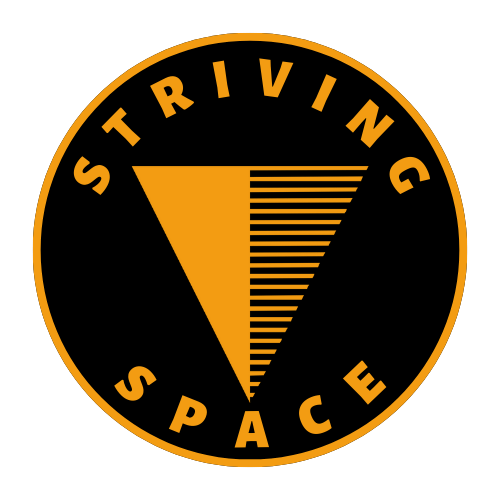What is Notion AI? Notion AI is a set of Artificial Intelligence (AI) features that are integrated into the popular productivity app, Notion. Here’s an in-depth look at its current features, limitations, and practical applications:
Disclosure: I may earn a small commission if you buy something through my links in this content. This helps support my work, but my opinions and reviews are independent, not influenced by any affiliate partnerships.Notion AI features and functions:
- Summarization: It extracts crucial points and creates concise summaries of text in Notion pages. This saves time in reviewing long documents or capturing essential information.
- Brainstorming: It generates ideas for various purposes, such as naming startups, meeting agendas, or creative project concepts. It sparks inspiration and overcomes writer’s block.
- AI content writing tools: It assists with writing tasks like crafting email subjects, blog post outlines, or creative prompts. It provides a starting point or different angles to explore.
- Code Generation: It automatically generates basic code snippets in various languages based on prompts or descriptions. This simplifies coding tasks and reduces boilerplate code writing.
- Translation: It translates text within Notion pages across multiple languages. This facilitates communication and understanding across language barriers.
- Data Insights: It extracts insights and generates reports from data tables within Notion. This simplifies data analysis and makes it more accessible.

What else Notion AI can do? For a full list of Notion AI features, visit here: Just Ask Notion AIHow Notion AI works:
Notion AI uses a large language model (LLM) that is trained on a massive dataset of text and code. This LLM understands the context of your input and generates its output based on that understanding. Notion then integrates this output into your pages seamlessly.
Limitations:
- Accuracy: LLMs are still under development and can sometimes produce inaccurate or factually incorrect outputs. Double-check information generated by Notion AI before relying on it.
- Bias: LLMs can reflect biases present in the data they are trained on. Be aware of potential biases in Notion AI’s outputs and consider alternative viewpoints.
- Creativity: While Notion AI can help spark ideas, it lacks true creativity. The outputs primarily rely on existing patterns and data, not original thought.
- Control: The user control over Notion AI’s outputs is limited. You can provide prompts and choose between different options, but fine-tuning the results to your exact needs is challenging.
Notion AI Business Applications and Practical Use Cases
Notion AI has the potential to significantly improve workflows and enhance productivity in a variety of business settings. Here are some practical applications and use cases:
AI-powered content creation for business and marketing:
- Brainstorming ideas: Generate content ideas for blog posts, social media campaigns, email marketing, and product descriptions.
- Writing drafts and outlines: Get a jumpstart on content creation with AI-generated draft outlines or introductions.
- Personalizing marketing messages: Adapt the tone and style of marketing materials to different audiences.
- Summarizing long reports: Create concise summaries of market research or industry reports for team discussions.
Project management and collaboration:
- Automatically capturing meeting notes: Use AI to automatically summarize key points and action items from meetings.
- Generating project reports: Extract data from project boards and generate reports automatically.
- Creating project proposals: Get help brainstorming ideas and drafting key sections of project proposals.
- Facilitating brainstorming sessions: Generate ideas for new projects, problem-solving, and strategic planning.
Sales and customer service:
- Personalized sales proposals: Tailor proposals to individual clients based on their specific needs.
- Creating FAQs and knowledge bases: Use AI to automatically generate accurate and helpful FAQs for customer service teams.
- Summarizing customer feedback: Extract key insights from customer reviews and surveys.
- Drafting personalized email responses: Quickly craft targeted email responses to customer inquiries.
Data analysis and decision-making:
- Extracting insights from data: Use AI to identify trends, patterns, and correlations within datasets.
- Generating reports and presentations: Create visually appealing reports and presentations from data automatically.
- Simulating different scenarios: Run simulations to test different business decisions and assess potential outcomes.
- Summarizing complex financial documents: Get a quick overview of key financial reports and metrics.
Notion AI also can be used for:
- Translate documentation for global teams.
- Improve the accessibility of internal resources by automatically generating transcripts for audio recordings and videos.
- Personalize employee onboarding materials.
- Automate repetitive tasks like data entry and scheduling.
Note: Notion AI offers valuable tools for basic data analysis and visualization within its ecosystem. However, it’s not a replacement for dedicated data analysis software or the expertise of professionals in the field. Treat it as a productivity booster and use it with realistic expectations regarding its capabilities.
As Notion AI continues to evolve, its data analysis and decision-making features are likely to improve. Keep an eye on updates and new functionalities that might further enhance its capabilities in this area.

Notion AI for students and Professionals Real-world uses:
- Students: Summarize research papers, brainstorm essay topics, generate code examples for assignments.
- Professionals: Write concise meeting summaries, draft email outlines, generate creative marketing ideas.
- Writers: Overcome writer’s block, brainstorm story ideas, get feedback on writing style.
- Programmers: Quickly generate basic code snippets, translate programming languages, check for syntax errors.
- Anyone: Translate text for personal or professional use, extract key points from long documents, organize and analyze data.
Although Notion AI is still under development and its capabilities are constantly evolving, the potential for businesses to leverage AI to improve efficiency, creativity, and decision-making is significant. As users become more comfortable using AI tools and developers create new features, we can expect even more innovative applications of Notion AI in the future of business or for personal daily productivity tools.
Notion always look best in MacBook and iPad
 Apple 2023 MacBook Pro Laptop M3 Pro 14 inch – Space Black
Apple 2023 MacBook Pro Laptop M3 Pro 14 inch – Space Black Apple 2020 MacBook Air Laptop M1 Chip – Space Grey
Apple 2020 MacBook Air Laptop M1 Chip – Space Grey Apple iPad Pro 11-inch (4th Gen) M2 Wifi + Cell, Liquid Retina Display
Apple iPad Pro 11-inch (4th Gen) M2 Wifi + Cell, Liquid Retina Display Apple iPad Mini (6th Gen) A15 Bionic chip, 8.3-inch Liquid Retina Display
Apple iPad Mini (6th Gen) A15 Bionic chip, 8.3-inch Liquid Retina DisplayHow Notion Ai Differs from ChatGPT and Google Bard
What’s the difference between Notion Ai and ChatGPT or Google Bard? Please find below a comparison of the primary differences between three AI-powered language models – Notion AI, ChatGPT, and Bard, as of today:
Focus and Integration:
- Notion AI: Designed specifically for productivity and creativity within the Notion app, tightly integrated with its features and workflows.
- ChatGPT and Bard: More general-purpose language models, usable across various platforms and tasks, not tied to a specific app.
Features:
- Notion AI: Emphasis on summarization, brainstorming, code generation, translation, and data insights, tailored for Notion’s use cases.
- ChatGPT and Bard: Wider range of features, including text generation, translation, question-answering, creative text formats, code generation, and more.
Customization and Control:
- Notion AI: Limited control over outputs, mainly through prompts and choosing from generated options.
- ChatGPT and Bard: Greater customization through instructions, prompts, and parameters, allowing for fine-tuning of results.
Accessibility:
- Notion AI: Available only within the Notion app, requiring a paid subscription for full access.
- ChatGPT and Bard: Accessible through various platforms and APIs, with free or paid access models depending on usage.
Specific Strengths:
- Notion AI: Excels in streamlining workflows and enhancing productivity within Notion, especially for tasks like summarization, brainstorming, and code generation within a project management context.
- ChatGPT: Known for its fluency and ability to hold engaging conversations, well-suited for chatbots, virtual assistants, and social interactions.
- Bard: Prioritizes factual accuracy and informativeness, making it a strong choice for research, education, and knowledge-based tasks.
Get Notion AI here!

Just ask Notion AI.
Designed specifically for productivity and creativity within the Notion app, tightly integrated with its features and workflows. Knowledge, answers, ideas. One click away.
*affiliate link
Should you upgrade to Notion AI? I think yes, if you’re already a Notion user and want AI capabilities tightly integrated into your Notion workspace for productivity and creativity. ChatGPT and Bard are for the greater customization need, control over outputs, or accessibility across different platforms. Notion is still one of the best collaboration tools for teams. Combine all of them and you can be a winner.












